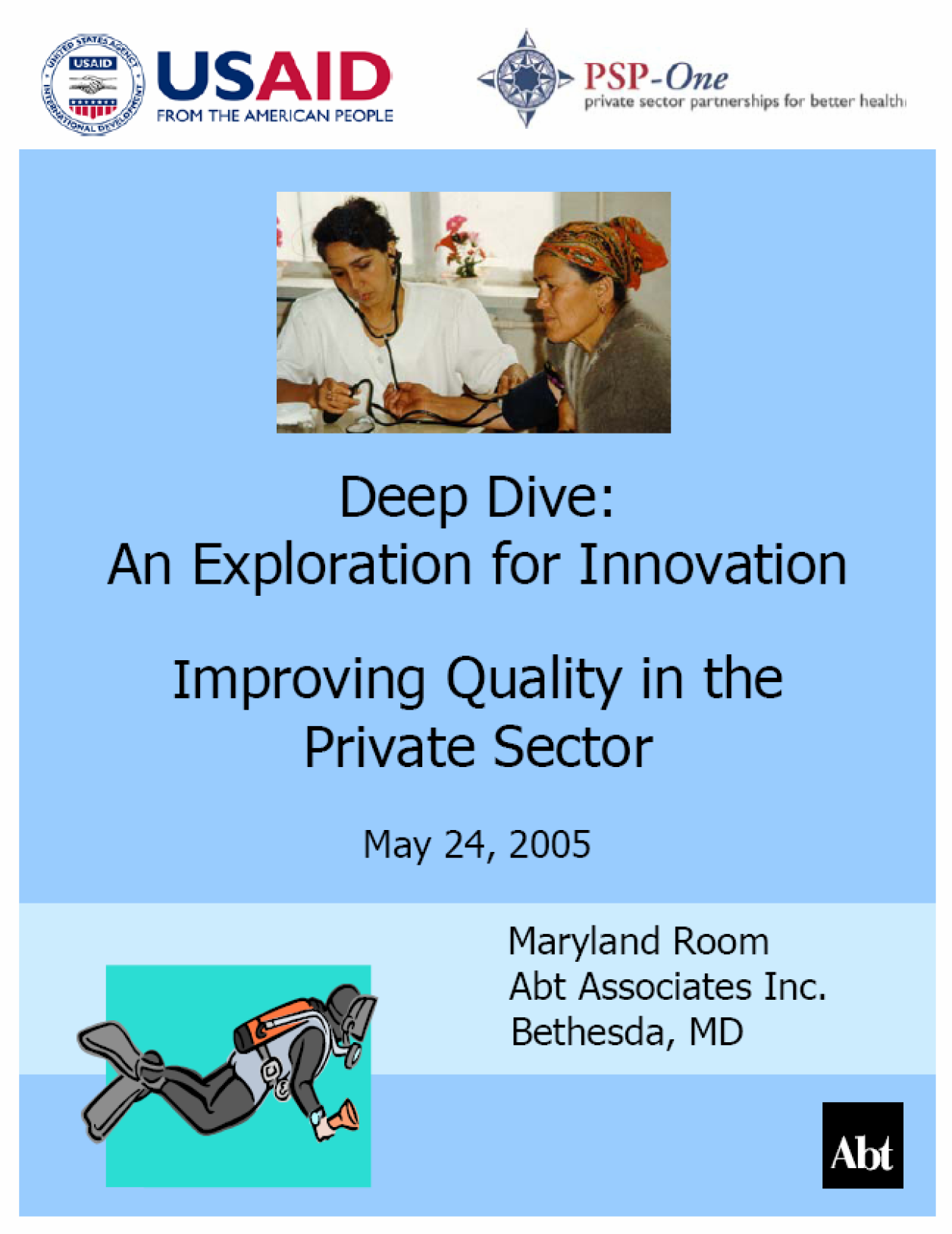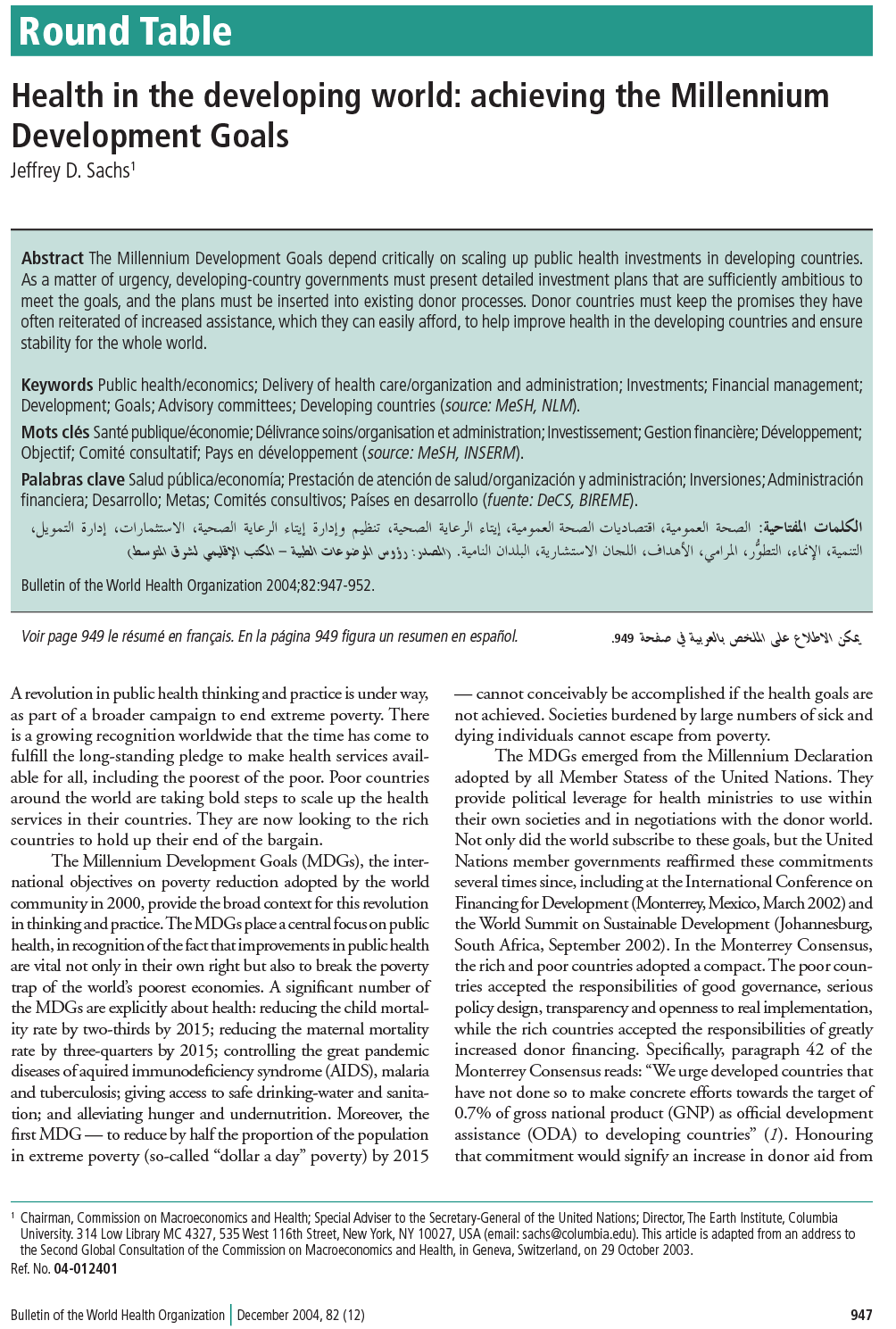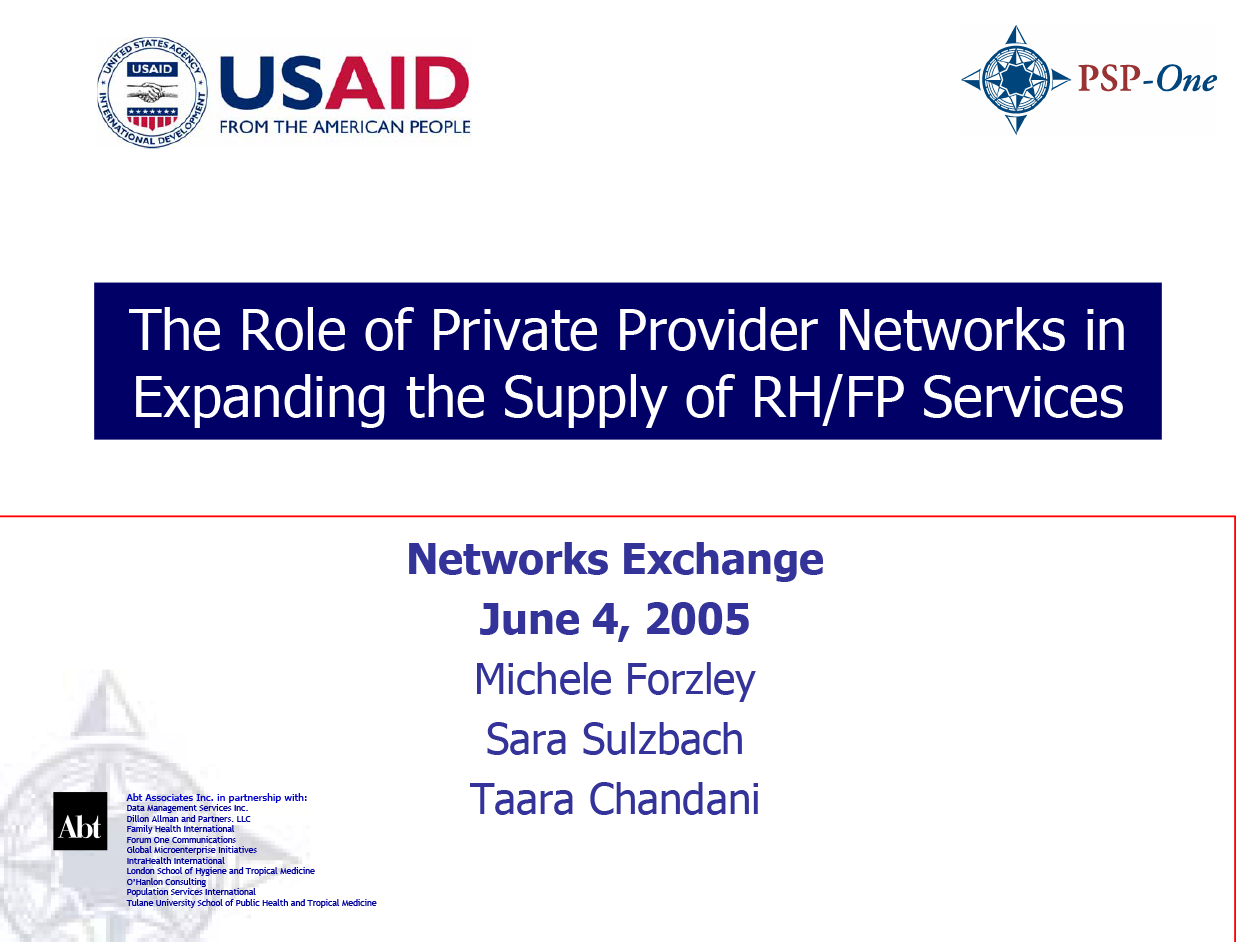
Resource Library
Deep Dive Report: An Exploration for Innovation. Improving Quality in the Private Sector
On May 23, 2005, twenty-five participants representing USAID and 11 different Cooperating Agencies (CAs) and organizations met to discuss and determine how to strengthen the quality of health services provided by the private sector. The Deep Dive methodology is a facilitated knowledge-sharing and learning process designed by EnCompass that establishes a rich, supportive environment for appreciative learning, bold exploration, and creativity and innovation. It is adapted from the work of IDEO, the leading design and development firm in the U.S. known for its culture of creativity and innovation. The Deep Dive was used to help the participants think beyond the "box" and work toward developing strategies that they could implement together in a developing country. An energetic and creative two-person team, Laverne Webb and Tessie Catsambas from Encompass, LLC, facilitated the daylong process. The details of this most interesting and productive process are described in the report.
Resource Type : Report
Country :
Year : 2005-06-22T15:30:00
Language : English
Project : SHOPS

Resource Library
Summa Foundation Brochure
The Summa Foundation (Summa), a not-for-profit investment fund, provides financing and technical assistance to the private and commercial health sectors in developing countries. Summa's goal is to stimulate and expand the role of the private sector in the delivery of affordable health services and products. Summa considers proposals for a broad range of health projects but focuses primarily on maternal and child health, including reproductive health and family planning.
Resource Type : Brochure/Postcard
Country :
Year : 2005-07-18T15:15:00
Language : English
Project : SHOPS

Resource Library
HIV-AIDS Brochure
An overview of how the CMS project worked with the private sector on prevention and treatment programs for sexually transmitted infections and HIV/AIDS around the world.
Resource Type : Brochure/Postcard
Country :
Year : 2005-07-18T13:45:00
Language :
Project : SHOPS

Resource Library
Health in the Developing World: Achieving the Millennium Development Goals
The Millennium Development Goals depend critically on scaling up public health investments in developing countries. As a matter of urgency, developing-country governments must present detailed investment plans that are sufficiently ambitious to meet the goals, and the plans must be inserted into existing donor processes. Donor countries must keep the promises they have often reiterated of increased assistance, which they can easily afford, to help improve health in the developing countries and ensure stability for the whole world.
Resource Type : Report
Country :
Year : 2004-12-01T14:00:00
Language : English
Project : SHOPS

Resource Library
Sample Tools from the Network Research Navigator
Sample Tools from the Network Research Navigator
Resource Type : Other
Country :
Year : 2005-06-02T18:30:00
Language : English
Project : SHOPS

Resource Library
Network Research Navigator
The Network Research Navigator (NRN) is a research tool for the reproductive health community who are interested in the topic of networks. It is intended to help one navigate the literature on networks and easily retrieve articles, case studies, assessment tools and summaries as needed. The information is stored in a single excel spreadsheet and categorized within a series of internal worksheets. The NRN provides a compendium of the key literature to date, including material on existing commercial networks, social franchises and non-profit organizations. Full reports and papers are currently linked to the spreadsheet and can be downloaded immediately.
Resource Type : Tool
Country :
Year : 2005-06-02T18:00:00
Language : English
Project : SHOPS

Resource Library
The Role of Private Provider Networks in Expanding the Supply of RH/FP Services - Presentation for June 4th 2005 Network Exchange Meeting
The Role of Private Provider Networks in Expanding the Supply of RH/FP Services - Presentation for June 4th, 2005, Networks Exchange Meeting
Resource Type : Presentation
Country :
Year : 2005-06-02T17:30:00
Language : English
Project : SHOPS

Resource Library
Willingness to Pay: A Technique for Helping Programs Balance the Need for Sustainability with Social Mission (an audio Power Point Presentation)
Dr. Jim Foreit is a Senior Associate at the Population Council and has coauthored a manual on a Willingness to Pay instrument that is widely used in reproductive health settings. This presentation for the Willingness to Pay Panel provided an overview on the efficiency and effectiveness of Willingness to Pay Tools.
This is a large power point file with audio. When downloading, please be patient.
Resource Type : Presentation
Country :
Year : 2005-05-23T12:45:00
Language :
Project : SHOPS

Resource Library
Willingness to Pay for Family Planning: Country Applications (an audio Power Point Presentation)
Dr. Karen Foreit is a senior felow at Futures Group and is one of the developers of the Willingness to Pay Tool. She co-authored a user's manual on the tool and conducted several projects to use it to make decisions about prices and price changes. Dr. Foreit's presentation to the Willingness to Pay Panel reviews the experiences of the Futures Group's application of the tool in several countries.
This is a large PowerPoint file with audio. When downloading, please be patient.
Resource Type : Presentation
Country :
Year : 2005-05-23T11:15:00
Language :
Project : SHOPS

Resource Library
Willingness to Pay Surveys for Setting Prices for Reproductive Health Products and Services: A User's Manual (en Français)
Willingness to pay surveys for setting prices for reproductive health products and services (updated). Managers of reproductive health programs frequently consider increasing fees as a means of enhancing the sustainability of their programs. Willingness to pay (WTP) surveys are a tool for measuring the demand for services and estimate revenues if price increases are implemented. This manual describes the WTP concept and outlines methodology for developing a WTP survey. This is the French revised version (2004).
Resource Type : Tool
Country :
Year : 2005-05-23T10:30:00
Language : French
Project : SHOPS
Pagination
- Previous page
- Page 11
- Next page






